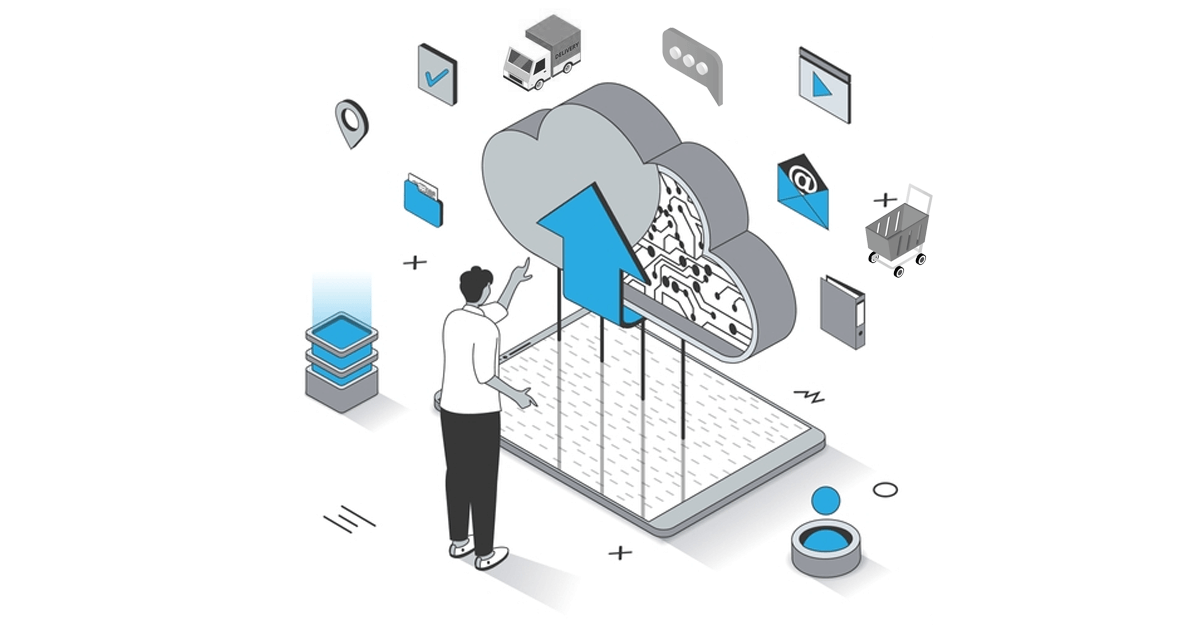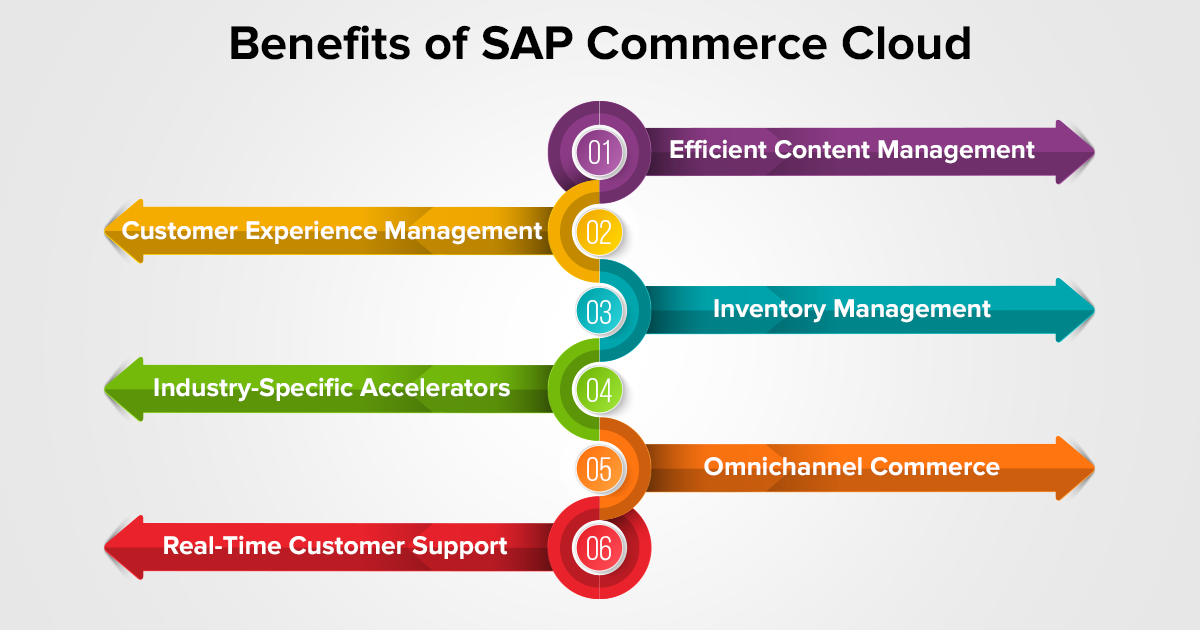The COVID-19 pandemic has led to the exponential growth of the eCommerce sector and helped technology to evolve to offer better customer experiences. With artificial intelligence and voice commands making their mark everywhere in the virtual environment, selling to a wider section of the audience has become quite easier for enterprises.
According to Harvard Business Review, in early 2021, a survey by the EY Future Consumer Index found that 80% of U.S. consumers have changed their way of purchasing things. There was a 60% decline in visiting brick-and-mortar stores and 43% of the customers preferred to shop online for products they would have previously bought in stores.
Further, buyers are demanding new levels of customer experience and personalized services as they interact with brands with an intent to purchase. These buyers want a consistent experience across different media, thereby, forcing businesses to find cost-effective ways to seamlessly provide opportunities for them to buy. All of this begins with setting up a robust e-commerce website by integrating cutting-edge cloud technology.

SAP Commerce Cloud: A Platform for Holistic Shopping Experiences
SAP Commerce Cloud is a software-as-a-service offering and it is a complete e-commerce solution that integrates all the components required for an omnichannel business. It includes options for managing product content, experience management, personalization, and order management in a single platform.
It integrates all digital and physical customer touchpoints such as online, mobile, point-of-sale, physical customer touchpoints as well as social media and print channels. The SAP Commerce Cloud is one of the critical components of the SAP C/4 HANA Suite that includes SAP Marketing Cloud, Sales Cloud, and Customer Data cloud to form the comprehensive CRM environment.
SAP Commerce Cloud contains preconfigured, industry-specific functions for retail, production, wholesale, telecommunications, travel, and public service industries and can be easily adapted to any other requirement as well. Needless to mention this platform offers preconfigured integrations into the SAP core applications. It actively allows business users to engage and understand customers throughout their buying journey – from content creation and merchandising through fulfillment. The build and deployment process of Commerce Cloud has been standardized and automated and can be carried out by the client or the partner at any time without any day-to-day support requirement. Essentially, the Commerce Cloud focuses on the Self-Service Portal, to help execute processes such as deployments, monitor systems, and carry out all other necessary infrastructure work.
Whether businesses want to improve sales by adding industry-specific functions to their existing platform or to benefit from cloud-native architecture, SAP Commerce Cloud can help handle these challenges. What an enterprise requires is a reliable partner who can assist implement the right solution. Gemini Consulting & Services has helped many clients to offer better customer experience through SAP Commerce Cloud. Contact us to know how you can leverage the SAP cloud technology to increase omnichannel sales.

SAP Commerce Cloud is based on a flexible modular system. Businesses can either implement built-in modules with ready-to-use functionality or customize them by adding extensions and tailoring them to cater to other industries.
1. Highly Efficient Content Management for Products
The solution focuses on the presentation and processing of large volumes of product information while enabling content storage and management across multiple catalogs in a single window. Now, this facilitates content consistency across numerous digital and physical sales channels. This feature allows users to-
- Create and manage multiple catalogs
- Provide descriptions in different languages
- Add supporting images and videos
- Support complex product specifications
- Create user-generated content
- Edit content in real-time
А single source facilitates multiple corporate working processes and provides users with rich information on products or services sold even those that you receive from numerous vendors.
2. Customer Experience Management
With the help of the Experience Management module within the SAP Commerce Cloud, users can create the right strategy that will help tailor product information as per the requirements of audiences. A high level of personalization and context-driven services with well-tailored content leads to favorable user experiences thereby enhancing sales. user behavior. This application helps businesses interpret personal information the user provides in a personal account and track user activities (clicks, likes, search requests, etc.) across all channels, turning this information into valuable insight. Now, this can help create:
- Personalized recommendations
- Marketing strategies & targeted promotional campaigns
- Storefront customization
Businesses can easily segment customers based on preferences such as brand, style, color, hobbies, and interests, and set up data-driven rules for each segment. As a result, customers get a deeply personalized shopping experience, increasing the chances of conversion.
A powerful merchandising capability enables setting up fixed locations for certain products on the website depending on predefined business goals. This approach actively helps increase sales.
Another valuable function is customer recovery which helps re-engage users who surfed through product pages but left without making a purchase. It is possible to create intuitive remarketing campaign rules that will be triggered with certain pre-set conditions to lure back these customers again.
3. Inventory Management Capabilities
It is possible to view and follow through with customer orders from start to finish, streamline order fulfillment, and can control inventory and sourcing processes from a single place. This is irrespective of the involvement of multiple mediums, resources, or applications.
- Global real-time visibility into multiple sales channels & inventories.
- Combines buying and order fulfillment functions.
- Flexible sourcing to quick shipments
- Improved visibility of order statuses
- Options for buying, collection, and returns
4. Industry-Specific Accelerators
Apart from fully integrated modules, SAP Commerce Cloud offers more specialized ready-to-use solutions — accelerators that contain best practices and unique functions needed for certain businesses or sectors. To kick off an online presence as fast as possible, a business just needs to launch an appropriate accelerator, edit content, add products and relevant prices with stick information, and get this accelerator integrated with the ERP. Once an efficient eCommerce platform is in place it can be endlessly refined and customized.
5. Omnichannel Commerce
With the exclusive B2B Accelerator, businesses can easily build omnichannel solutions and handle complex relationships with their clients. Catalogues can be changed, quotes managed, and order history can be tracked across all touchpoints. The B2C Accelerator also provides a wide range of capabilities for improving customer engagement and enables consistent content management across all devices. This also includes email communication, search and navigation, shopping cart, order management, and other features exclusively for B2C users to grow and expand.
6. Real-Time Customer Support
SAP Commerce Cloud builds a comprehensive customer profile, allowing service agents to view the entire journey across channels combined with personal data and preferences. Thus, they can easily provide proactive customer support and offer personalized recommendations too.
The SAP environment is equipped to quickly release products into the market, better understand customers and anticipate their preferences with relevant content without much effort.



